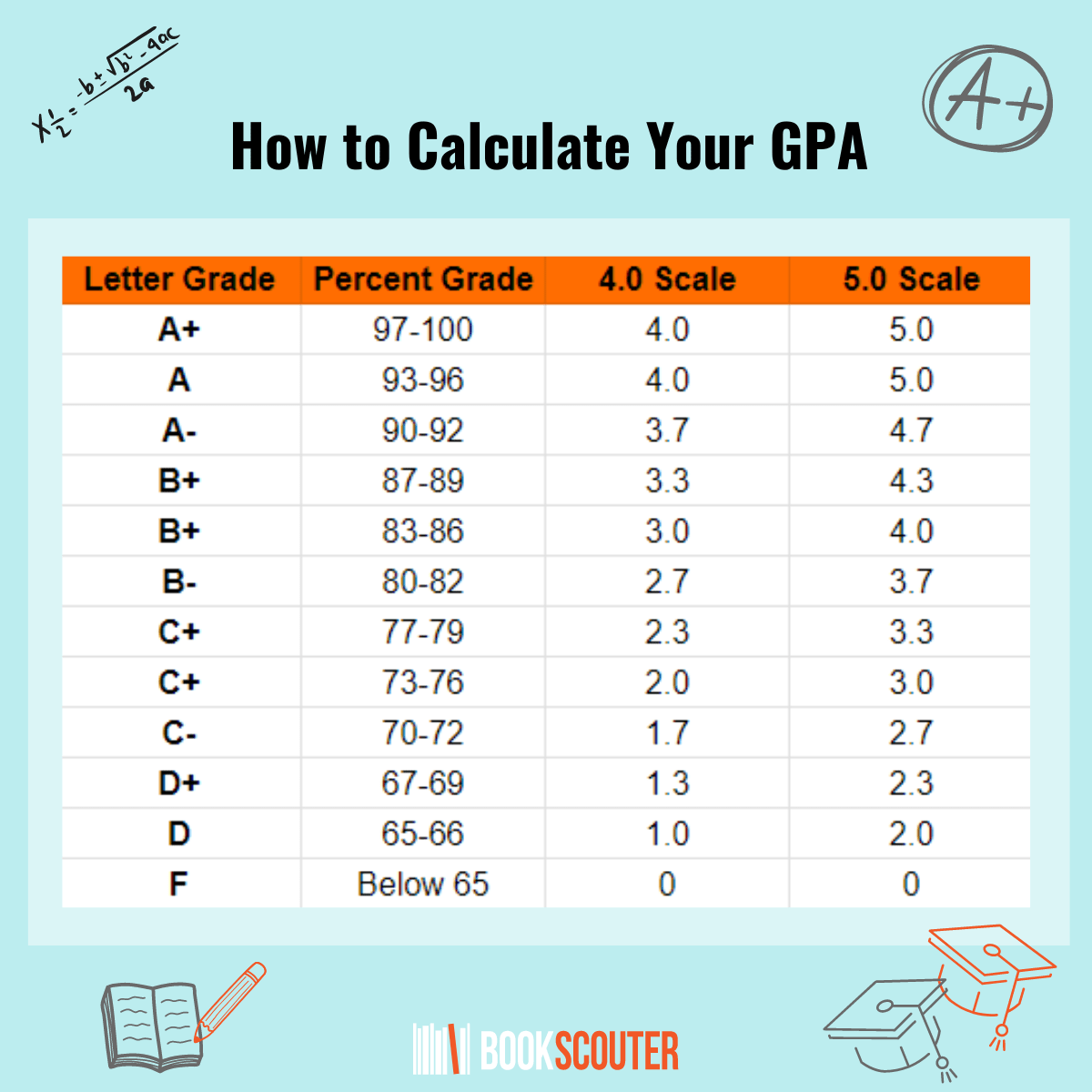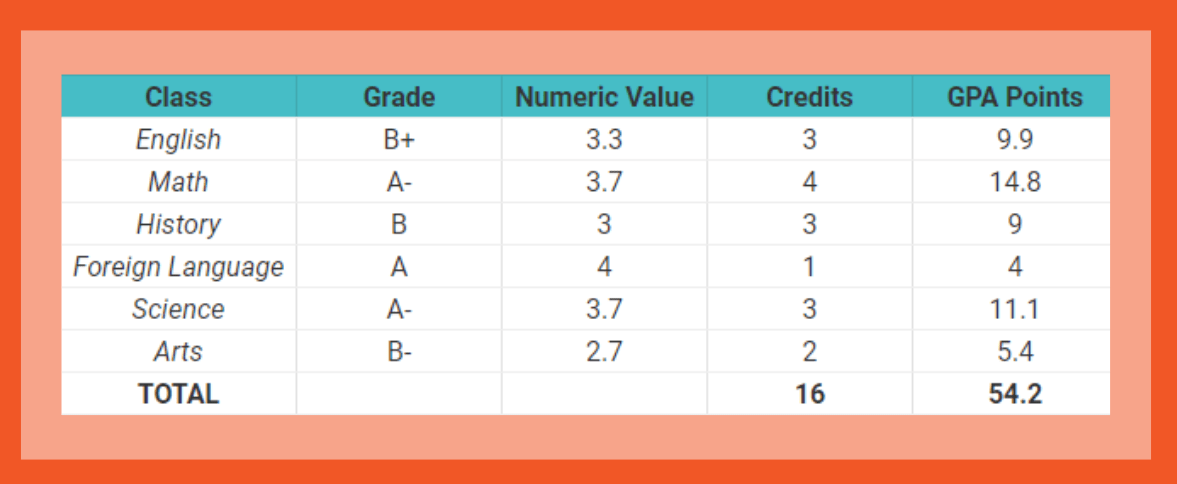
When it comes to college admissions, you’ll hear over and over again how important your high school grade point average (GPA) is. And if you’re asking yourself what a good GPA is and whether it really matters at all, check out the article “What Is a Good GPA?”. Getting an A in a class shows college admissions counselors that you take your work seriously and have the skills necessary to succeed in college.
The main takeaway here is that GPA is a big deal. Because it’s a big deal, it’s in your best interest as a future college student to know how to calculate your overall and final GPA. That way, you know what colleges or universities are realistically in your GPA range, and you’ll know what kind of GPA to see on your transcript by the time graduation rolls around. Definitely, you will need a strong GPA to qualify for most graduate degree programs.
Calculating Overall GPA
To figure out the overall GPA you have, you’ll need to pull up an unofficial transcript of all the classes you’ve taken since your freshman year in high school. You will probably be able to access that type of transcript on whatever portal your high school uses for grades. If you’re having trouble finding it, talk to your counselor or use physical report cards you’ve gotten in the past few years.

Here’s where the math bit comes in. For every grade you’ve received, you’ll need to assign a number to it. Every A is worth 4, every B is worth 3, every C is worth 2, every D is worth 1, and an F is worth 0.

At this point, there are a couple of routes you can take. If you’re calculating a weighted GPA, then you’ll need to find your school policy on honors and Advanced Placement (AP) classes. For example, while a B is usually worth 3 points in a class, if it’s an AP class then your school might add a point so it’s actually 4. Similarly, an honors class might add an additional 0.5 points, so instead of receiving 3 points for a C you’ll get 3.5 points.
However, if you’re calculating an unweighted GPA, you will proceed with the original point system (A-4, B-3, C-2, D-1, F-0). There’s no need to worry about calculating with an additional 0.5 or 1 point for honors and AP classes.
From here, you’ll need to determine how many credits each class is worth. Again, the way your school numbers and distributes credits depends on where you live, so if you have questions, refer to your counselor. Your counselor should have a plan available listing your credits so that you’re on track for graduation. Otherwise, check your unofficial transcript or school portal to find where credits are listed for each class.
Now, you’ll multiply the number assigned to the grade of each class by the number of credit hours that class is. For example, if you received a C in your 3-credit English class, you’d multiply 3 by 3 to get 9 points for that class.
Do this for every class you’ve taken in high school. Then, add up all those points and divide by the total number of credit hours you’ve taken. And there you have it! You’re cumulative weighted or unweighted GPA.

Calculating Final GPA
Now, to calculate your final GPA, the process becomes a little more complicated. Depending on what semester you’re in, you might be able to work with the final grades that are already posted. If that’s the case, you’ll follow the same steps as the overall GPA section.
But if you’re wanting to predict a final grade in your class based on assignments and tests you haven’t taken yet, you’ll have to jump through some extra hoops. For example, if you’re halfway through the second semester of your senior year and need to know your final GPA, you’ll need to look at your syllabus for each class you’re taking. The syllabus should have a breakdown of how your grade is calculated.
For example, your biology class may be 50% exams, 25% homework, and 25% participation or attendance. To calculate your final grade, you’ll need to consider what grade you currently have in the class, what grade you want to have, and what the grade breakdown is.
If you’d like to do the math yourself, you’ll have to calculate how many points you’ve already gotten in each category, plus how many more you anticipate on getting. For example, if homework assignments are 25 points each and there are 200 points total for assignments, add up the points you already have and add how many more points you think you will receive (this number will be less than or equal to 200). Then, multiply your points by the percentage weighted in the class. If assignments are 25% of your grade and you anticipate earning 180 points, multiply 180 by 0.25.
Repeat for each category, then add everything up. That’s your anticipated grade for your class! From here, you’ll follow the instructions from the last section to calculate your overall GPA.

Wondering what can help you improve your grades? There’s a great list of suggestions to help you stay focused and productive, we’ve published it as study tips for students in our blog.
Conclusion
If you find yourself partway through the semester wondering how the semester got so out of hand, read our tips on how to find motivation to finish a semester strong. If you’re stressed about knowing your GPA, stress no more! Whether you’re good at math or not, you can still calculate your final GPA. There are plenty of online grade calculators to help you out if you don’t want to complete the calculations on your own. Knowledge is power, and now you know!




